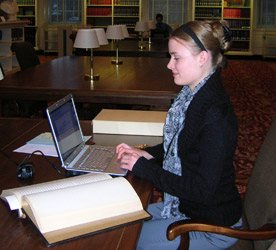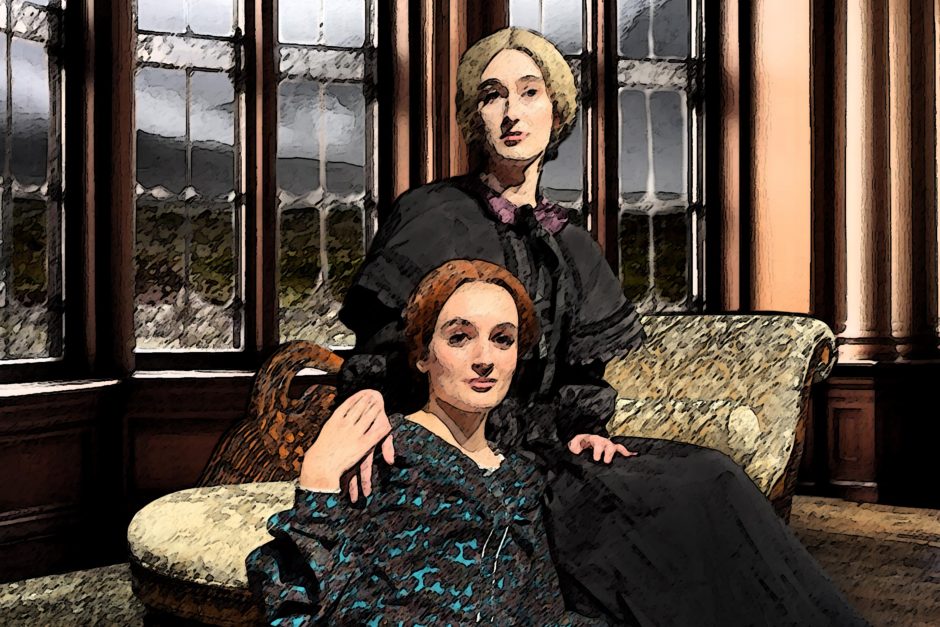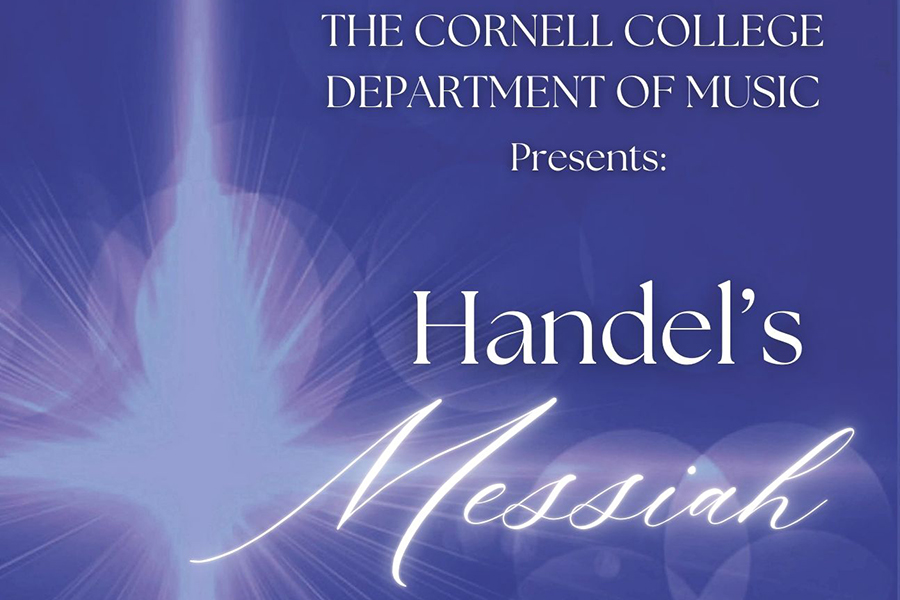Schmeling discovers passion for history research during fellowships
In the midst of her junior year, history major Stephanie Schmeling ’09 was confronted with the question that haunts most upper-class students: what next? She knew only that she liked American History, even though the coursework had never come easy for her.

Fast forward to the end of senior year. Schmeling has completed two prestigious history research fellowships en route to a 70-page honors thesis on the yellow fever epidemics of the 1890s in Philadelphia. She’s named the department’s outstanding senior, graduates Phi Beta Kappa, and is headed to New York University for graduate studies in the field she now knows she loves.
“My thesis project began as something to boost my undergraduate record and something to occupy my time instead of pursuing a double major in another department,” Schmeling says. “I figured that’s what history people do: they research, so I suppose I should see what it’s all about. I had no idea how intellectually stimulating and personally inspiring research could be. The more familiar I became with analyzing primary documents the easier it became to think deeply and formulate ideas about events and people and history.”
Her research explored the variety of ways in which people responded to the epidemics which recurred throughout the 1890s. By delving into diaries, personal letters, and other sources, Schmeling discovered significant patterns in the way that an individual’s cultural and personal history affected their response to the crises.
Schmeling’s research journey began in Philadelphia during the summer of 2008. She was chosen to participate in the SHEAR/Mellon undergraduate seminar at the McNeil Center for Early American Studies at the University of Pennsylvania, and spent her days delving into the archives of the city’s three best library sources for historical manuscripts.
During her senior year, Schmeling applied for a Cornell Fellowship which allowed her to spend two more weeks in Philadelphia finalizing her research and another two weeks back on campus organizing and writing her thesis. During her fellowship, Schmeling confronted her daily tasks completely independently, an experience that she found very empowering.
“The Cornell Fellows program allowed me to invest in myself, to stop comparing my abilities against others, and to develop the independent confidence I needed to assure myself that the path I have started down in the field of history and research truly is the path for me,” she said. “Without someone holding my hand, probing me to think analytically, and requiring me to follow deadlines and syllabi, I was able to see that within myself I do have the natural motivation and the passion for a career in research.”
Schmeling is now working towards a masters degree in archives and public history, and is interested in entering the field of Historical Editing as a career.
Read Schmeling’s thesis abstract as presented during the 2008 Cornell Student Symposium



